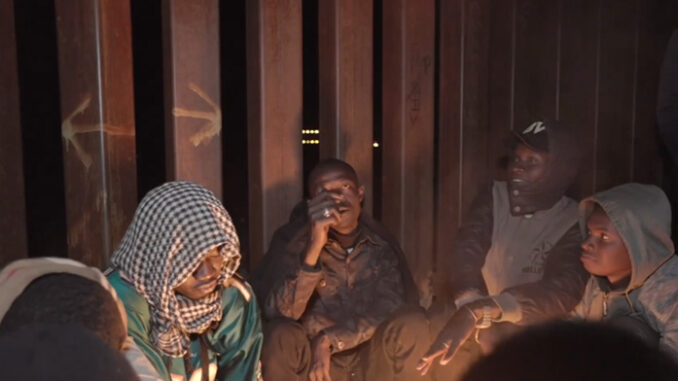
Over a dozen Republican governors joined forces in Eagle Pass, Texas, in show of support for Gov. Greg Abbott to speak out against “open border policies” put in place by the Biden administration.
“We are here to send a loud and clear message that we are banding together to fight to ensure that we will be able to maintain our constitutional guarantee that states will be able to defend against any type of imminent danger or invasion,” Gov. Abbott said.
In mid-January, the Texas Governor issued orders for the National Guard to assume control of Shelby Park. Concurrently, the governor implemented criminal trespass arrest authority, targeting migrants crossing into Texas unlawfully.
Subsequently, illegal crossings in The Del Rio Sector have witnessed a decline, totaling 16,718 encounters. In contrast, San Diego, particularly the San Ysidro Sector, has experienced a notable increase, with migrant encounters reaching 24,714.
While the spotlight remains on Eagle Pass, Texas, it’s crucial to turn attention to Tucson, where a staggering 50,583 encounters took place. This number significantly surpasses the figures in The Del Rio Sector by threefold and doubles that of San Diego. The total documented encounters on the southern border for the month of January reached 176,294 illegal migrants, with Tucson accounting for nearly one-third of all encounters documented by border patrol agents along the southern border.
#BREAKING Highest January on record–I just received the latest migrant encounter numbers from credible sources within CBP:
176,294 undocumented individuals were encountered along the southern border during the month of January.
Breakdown:
Between ports by USBP agents: 124,291…— Ali Bradley (@AliBradleyTV) February 2, 2024
Just last week in Lukeville, Arizona, more than 600 illegal migrants were processed after crossing through a breach in the wall in a single day. On February 2nd, I personally witnessed over 300 migrants crossing illegally between the east side of the Port of Entry (where I previously reported on the ranch smuggling migrants through a wall cut on MLK Jr. Day) and the west side wall, with over a hundred migrants crossing during the late hours of the night.
I had the privilege of interviewing three young men from the Czech Republic who were visiting family while on vacation. During our conversation, we delved into the pressing challenges Europe grapples with concerning immigration, exploring the question of whether nations possess the right to safeguard their borders. Additionally, we discussed their impressions and thoughts on their visit to the United States. “It is normal to control borders because you need to know who is going in and going out and why he’s going” one of the men said. “It is needed to protect citizens of that country and from something illegal and some dangerous people,” the other said.
Under the cover of night, predominantly migrants, including individuals from African nations such as Senegal, Mali, Guinea, Gambia, Mauritania, and Sudan, clandestinely crossed the west side of the border wall in Lukeville, Arizona. In the dimness, they traversed dark roads, flashing flashlights to guide their way in the cold. By 1:30 AM, a gathering of over a hundred illegal migrants from Africa, Mexico, and South America braved forty-degree temperatures, awaiting pickup by border patrol agents. Subsequently, they were transported to the Ajo station for processing, issued orders to appear in court—typically spanning from two to six years—and then further transported to their subsequent destinations, which could be anywhere within the United States.
As temperatures along the border remain near forty degrees, illegal migrants endure the harsh conditions, resorting to sleeping on the cold ground, huddling together for body heat, and crafting makeshift fires to stave off the chill. Children walk and play alongside their parents trying to stay warm as hours go by. In a poignant display of desperation, a father brings his small child, displaying signs of a fever, to the lone border patrol agent assigned to stand watch until processing vans arrive for pickup. Moved by compassion, the agent permits the mother and child to seek warmth in the backseat yet underscores the unfortunate reality that no medical aid is available.
While the national spotlight remains predominantly on Texas, Arizona stands as the primary gateway for illegal entry and human trafficking orchestrated by cartels along our southern border.
Reports indicate that the Mexican military has been deporting encountered illegal migrants back to Guatemala. However, insights from sources in Mexico suggest that those determined to cross persist in their journey until reaching the United States.
With attention directed at Texas, Arizona finds itself in a state of uncertain prospects as Governor Katie Hobbs offers little reassurance and no discernible resolution in sight for the ongoing crisis at our southern border.
